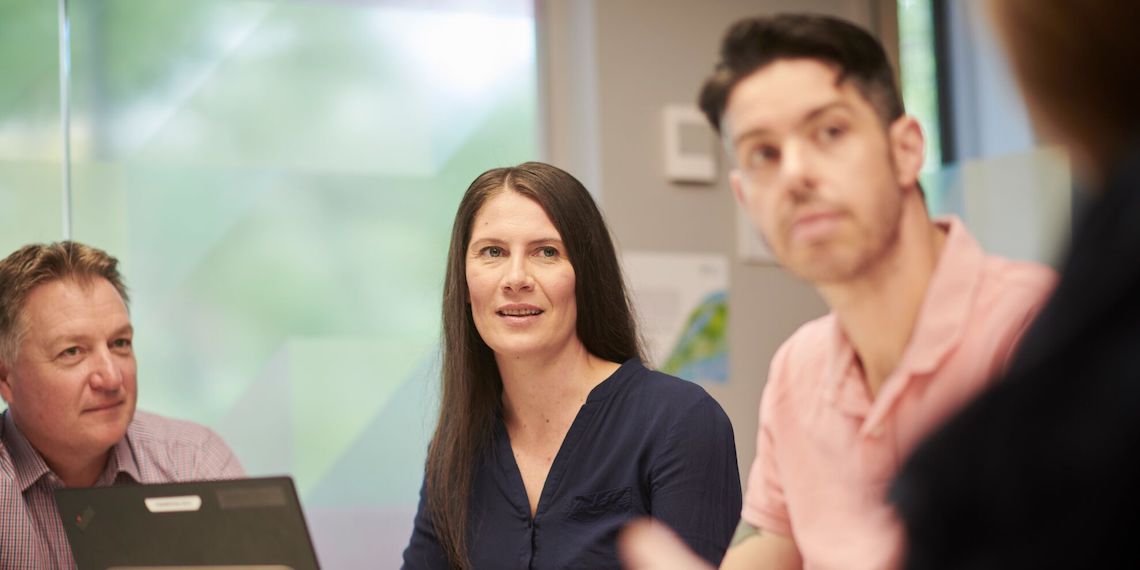Utility’s first Gender Equality Action Plan sets sights on intersectional change

Yarra Valley Water has launched its first Gender Equality Action Plan, with the document designed to support delivery on the Victorian Government’s strategy to improve gender equality in the workplace.
Following Victoria's Gender Equality Act (2020), all public organisations in the state are required to produce and implement a Gender Equality Action Plan (GEAP), aimed at achieving greater gender balance across the organisation, while ensuring equal pay for roles of the same value.
Yarra Valley Water Managing Director Pat McCafferty said the utility is proud to launch its first GEAP and continue its work towards gender equality under the plan.
“We’re tremendously proud to launch our first Gender Equality Action Plan, which provides us with a strong framework to build upon our long-standing commitment to promoting gender equality,” he said.
“Our vision is simple. We want all our employees to live in a safe and equitable society, and to be treated in a fair and respectful manner.
“We are strongly determined to ensure greater gender equality at Yarra Valley Water and will continue to invest significant time and effort to reach our goals. We cherish and value every staff member for who they are, and want our workplace culture to reflect that.”
YVW’s GEAP comes in the wake of other gender equality and inclusion strategies, including the utility's first diversity and inclusion strategy, which was launched in 2015 and its reconciliation action plan, which was first launched in 2017.
Yarra Valley Water General Manager of People, Performance and Culture Amy Singe said the utility has seen significant progress in gender equality since the first strategy was launched, but the GEAP provides the opportunity to stretch that progress even further.
“Our new GEAP is an important pillar of our commitment to making positive change,” she said.
“We are driven by creating a workplace that treats all staff equally and allows them to progress in their careers regardless of their gender identity.”
Representation of women across Yarra Valley Water rose from 44% in 2015 to 50% in 2021, while women in leadership increased from 35% in 2018 to 45% in 2022. In addition, the number of women on YVW’s board and executive teams exceeds 50%.
“Work plays an integral role in many of our lives, both professionally and personally. That’s why it’s so important that we instil a culture of equality and fairness across the board, so our staff feel proud to come to work every day. Our GEAP is an important part of that process,” Singe said.
Intersectional change
Given that YVW has had a specific and committed focus on diversity and inclusion since 2015, Singe said the GEAP is all about taking the next step for Yarra Valley Water and continuing to push for positive change.
“We've been committed to gender equality with a specific focus since 2015. The great results we’ve seen in terms of gender representation in our business are a direct reflection of that deliberate focus. Our GEAP is the next step for us in our journey,” she said.
“We really see it weaving into our purpose, which is to support the health and wellbeing of our customers and community and provide a brighter future for them and the natural environment.
“While we certainly had a legal obligation to produce our GEAP, for us it really enshrines our focus and commitment, and it gives us more impetus to prioritise this work even further.”
Singe said the groundbreaking Victorian legislation is particularly focused on intersectionality and encourages organisations to become a lot more granular in their approach to bolstering gender equality.
“The legislation is interested in the intersectionality side of gender equality. It recognises that all women might have certain barriers in the workplace, but women who have other attributes tend to face even more barriers, such as Aboriginal and Torres Strait Islander women, or women with disabilities,” she said.
“This legislation really stretches all organisations to look at the circumstances of their people through that intersectional lens as well, which makes planning and strategy much more nuanced.”
Singe said the legislation also requires a data-centric approach to informing the GEAP and implementing it.
“It requires us to be able to collate data and use it to inform our approaches. One of the things that we had to do through the process of producing our GEAP was a deep-dive audit to understand how we are currently travelling,” she said.
“We needed to collect data with an intersectional lens. Our GEAP recognises that we need to do more in that space, which is new and emerging, but we intend to tackle it head on.”
Supporting fairer futures
In terms of the plan, Singe said it reflects YVW’s aim of getting very deliberate and specific about its focus areas, including its parental leave policy and remuneration.
“We are looking at extending our parental leave policy by removing the eligibility requirements. This will mean extending it to 14 weeks of paid parental leave for both parents by removing primary and secondary caregiver terminology,” she said.
“This means that, If they want to, both parents can be off work at the same time. We see this lever as helping to improve continued participation in the workplace for women, but also reducing stigma and barriers for men to be able to take parental leave.”
Singe said YVW is also considering gender equality in relation to its remuneration policies.
“We have been doing work throughout our audit to understand what the gender pay gap is for us. We tend to have more males in high paid roles and, historically, in leadership roles. So we are taking a very targeted approach to stretching our targets around women in leadership and technical positions,” she said.
“We are also committing to external gender pay audits during the four-year period to make sure that we don't have any unintended gender inequality in terms of our remuneration and how we set pay.
Singe said fair pay is important, but it's also about recognising the link between low remunerations and the impacts on long-term financial security for women, particularly those women that are experiencing multiple barriers.
"It’s about recognising that women are disproportionately subject to domestic violence, and that financial stability can significantly impact their lives for the better,” she said.
“The more we can shore up financial security for all women, regardless of their cultural background or circumstance, the more likely the work we are doing here will have a positive impact on broader society, too.”


